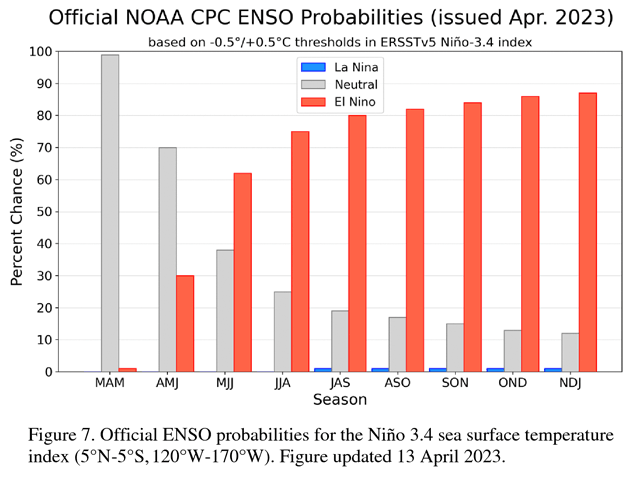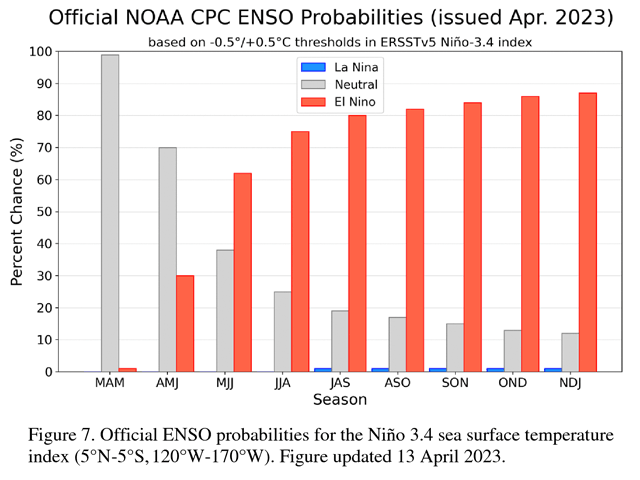Ag Weather Forum
El Nino Analog Years and Corn Yields
United States corn production prospects are still in the conversation stage. Yes, corn planting is off to a faster start than average, including in some top producing states. But there's an entire growing season to go. And with that, every detail of the corn crop, whether in or out of the realm of control, will be looked at and pored over.
That's where El Nino comes into the picture. In comparing the El Nino evolution and other global weather patterns we see in 2023 with historical years going back to the early 1950s, DTN long-range forecaster and weather risk communicator Nathan Hamblin identifies the following years as the top five analog years. They are, in order: 1951, 2002, 2006 2009 and 1953. For discussion, here's how corn production and yields fared in those analog years relative to the previous year.
1951: U.S. corn production totaled 2.653 billion bushels (bb) with an average yield of 36.2 bushels per acre (bpa). Production was 4% below the previous year and yields were just over 1 bpa below the yield in 1950.
2002: U.S. corn production came in at just over 9 bb, down 5% from the previous year. Corn yield average was 130.0 bpa, down 8.2 bpa from 2001.
P[L1] D[0x0] M[300x250] OOP[F] ADUNIT[] T[]
2006: U.S. corn production was lower than the previous year but still had a solid performance. Total corn output was 10.5 bb, down 5% from the previous year; however, that figure was still the third-highest production on record. Corn yield averaged 149.1 bpa, up just over 1 bpa from 2005 and was the second highest on record.
2009: U.S. corn production was noted as a record at 13.2 bb, up 9% from the previous year. Corn yield also hit a new record of 165.2 bpa, up 11.3 bpa from 2008.
1953: U.S. corn production was about 4% below the previous year at 2.9 bb. Corn yield was eight-tenths of a bushel per acre lower than the 1952 yield at 39.6 bpa.
These varying yield and production performances illustrate that El Nino presence by itself is not a guarantee of high corn yields compared to the previous year. It is noteworthy that even the years with lower production compared to the previous year did not show a dramatic drop in production. Also, the year in this array that did have record corn production attained that level with gusto, as the 2009 corn for grain output of 13.2 billion bushels was a robust 9%higher than the 2008 production, and the yield of 165.2 bpa was more than 11 bpa higher than the 2008 U.S. corn yield.
So, while the analog year review does not offer locked-in high production and yield relative to 2022, there do appear to be enough numbers on the "favorable" side to think that 2023 U.S. corn production does have the Pacific's support in favor of some big numbers at the outset of the 2023 corn season.
To see DTN Ag Meteorologist John Baranick's recent blog "Six Things to Know About a Developing El Nino," see https://www.dtnpf.com/….
Bryce Anderson can be reached at Bryce.Anderson@dtn.com
Follow him on Twitter @BAndersonDTN
(c) Copyright 2023 DTN, LLC. All rights reserved.






Comments
To comment, please Log In or Join our Community .